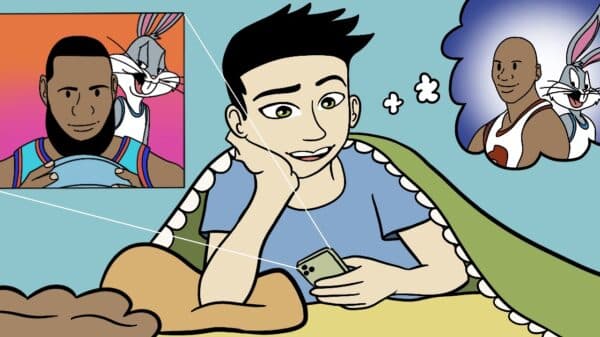Everyone has heard about fake news. Due to how easily misinformation spreads these days, you may have also seen the topic of media literacy pop up. What is it? Why is it important to us? Here we will go over what media literacy is and how you can improve your ability to discern the truth.
What is Media Literacy?
Media literacy is a term you have likely encountered through social media. Often, people use it when making a funny quip about others not understanding their favorite character. On the other hand, others online seem afraid of media literacy. So, what is media literacy?
According to the Oxford English Dictionary, media literacy is defined as “the ability to critically analyze stories presented in the mass media and to determine their accuracy or credibility.”
Some of the language might sound familiar when you look at the definition. In school, you probably had to critically analyze a passage of text. This is a component of media literacy. When given a piece of text, our brains have to decipher, understand, and determine its value. Similarly, when you read any news article, you must determine if the information provided is true or false. Even when you read a novel, it is important to be media literate to understand what you read.
Media literacy is an essential skill in the current age. All of us have constant access to stories online. News takes a variety of forms. There are the feel-good stories that we see on TikTok. There are announcements from celebrities and companies all over Instagram. Then there is also the plethora of news coverage we see on TV. News is everywhere, and anyone can make a post. Now more than ever, it is crucial to have strong media literacy.
However, concerning statistics are showing a decline in media literacy.
Troubling Statistics
According to the Boston University’s College of Communication, almost 72% of Americans say that having media literacy is an important skill because it gives us the ability to determine the truth. Without this ability, misinformation can spread rapidly.
It is a fact that lies spread faster than the truth. A study done by the Massachusetts Institute of Technology (MIT) proved the validity of this claim. When something goes viral, there is always the chance of it not being entirely truthful. Sometimes, we are not thinking very deeply about a post. Maybe it’s just something cute or funny, not breaking news. Still, what may start as a casual post could catch on and reinforce misinformation.
For example, if something goes viral on X (formerly known as Twitter), there may be a community note added. Are we looking closely for the truth in what comes across our screens?
When an X post about the potential domestication of foxes went viral, many expressed excitement. However, a community note soon appeared, providing articles and expressing the harm that feeding wild animals can do.
Studies by the BU College of Communication also revealed that only 42% knew how to access media literacy training. Media literacy training can be done at your local library. However, media literacy is also taught in schools. How have things declined so dramatically?
How is This Happening?
While schools are attempting to impart media literacy, not all are succeeding. Many of these schools are in difficult positions as a result of the current political climate and a lack of teachers.
The battle for media literacy is also hindered by the rise of artificial intelligence. As AI continues to grow, it is becomeing more difficult to determine what is real and not. At first glance, an AI-generated image might seem real; yet it can create misinformation at incredible speed.
Circular reporting is another danger that happens quite easily. Say a story goes viral, something that is flagged as breaking news — except that it is fake. A news outlet picks it up and publishes a piece. Then, another news outlet publishes its piece of fake news. The first news outlet credits the second with reporting on the matter. Therefore, it seems that the various news outlets have independent sources when they do not. Circular reporting may sound very confusing, but it can happen quite easily. Always be sure to check your sources!
Media literacy extends beyond news as well. There is trouble in the fictional world, with people struggling to separate what an artist or writer puts into their work from that person’s morals. TikToker @bluemoon.mph posted a video exploring this struggle. They also dive into the navigation of problematic creators and their content.
Even though fictional stories are not real, understanding them helps us understand real life. If readers cannot decipher that the antagonist’s actions do not equate to the writer’s beliefs, they will walk away with an inaccurate and incomplete perspective.
This Decline Spells Trouble
The more media-illiterate people are, the more danger we face as a society. We might even purposely spread misinformation to our peers. When more people believe a false truth, it spreads like wildfire.
According to MIT, it takes a true story six times longer to reach 1,500 people than a false story. That number can seem shocking, given there are so many online fact-checkers, such as FactCheck.org and PolitiFact. However, this is the age of the internet. At any point in time, someone can make a post, share a story, and go viral, no matter how true, or not, it may be.
This is also an election year in the United States and the United Kingdom. During election years, there is constant media coverage of politicians. People are exposed to countless ads and messages, as well as commentary from fellow voters. If voters do not possess strong media literacy, they can be led astray.
All hope is not lost. The BU College of Communication also found that nearly 7 out of 10 Americans are interested in getting better at spotting false information.
How Can We Improve Media Literacy?
This is evidently a known problem, but how do we fix it? There have already been discussions online about how to improve. After all, people do not want to spread or believe misinformation. Everyone wants to know the truth. As mentioned earlier, a great place to start is your local library.
Another way people are combatting media illiteracy is by building the idea of media literacy into classes. Now, this already happens in your typical literature course. However, students typically do not engage with media literacy until their middle school years. Starting the training earlier could help build stronger habits.
There is also the grassroots movement Media Literacy Now. This movement aims to “create a public education system that ensures all students learn the 21st century literacy skills they need for health, well-being, economic participation, and citizenship.” Media Literacy Now is thereby fighting for people to gain imperative knowledge.
Online creators are starting to speak up. LuckyLeftie is a popular creator who talks about a variety of media, like the Hunger Games. Leftie goes in-depth with her analysis, displaying great media literacy.
Even if literature classes were not your favorite, media literacy remains foundational to comprehending any kind of media you consume. The more media literate you are, the less susceptible you will be to misinformation, or misunderstanding something you read.
If you want to be more media literate, you can start right away. Do your research. Check sources. And, most importantly, be a vigilant reader!














